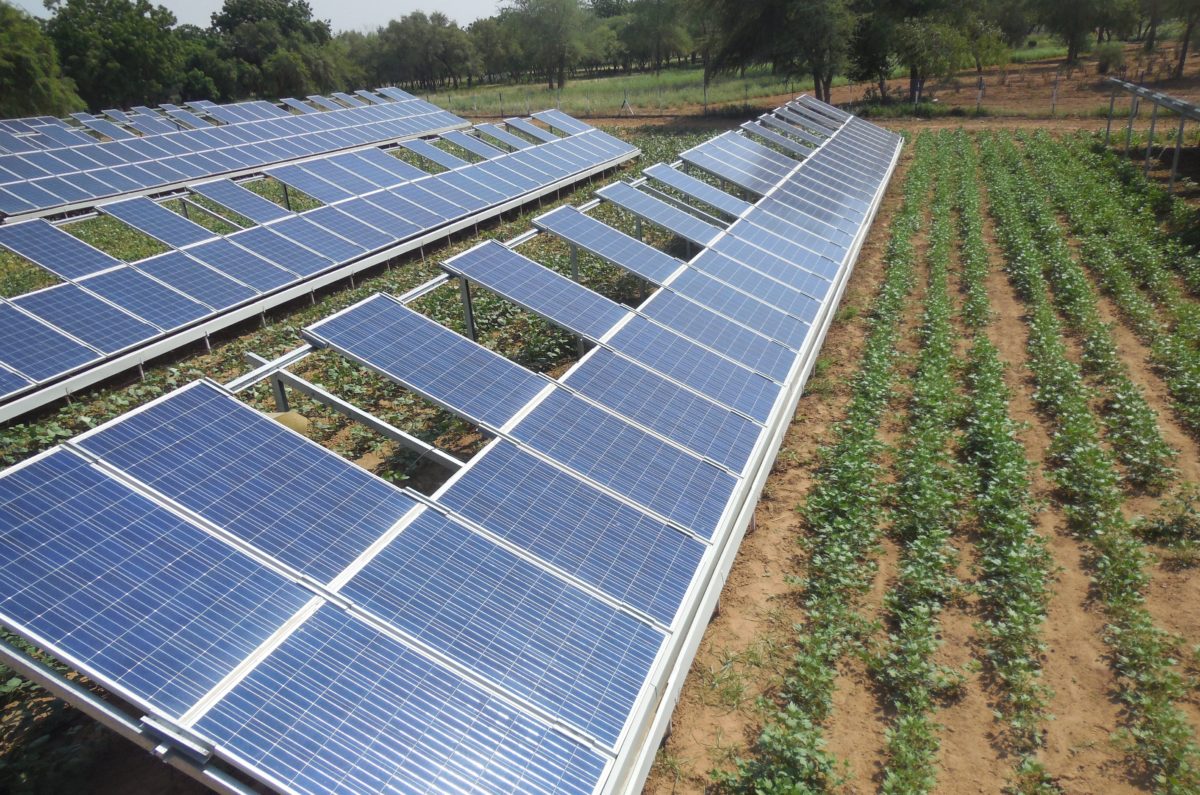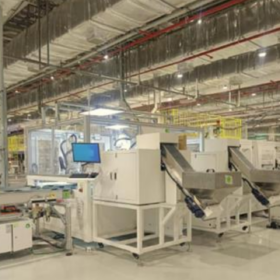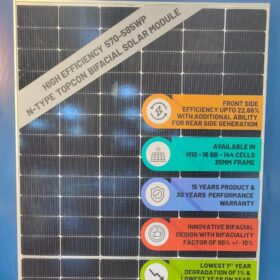In its letter to power minister R.K. Singh, National Solar Energy Federation Of India (NSEFI) has asked the ministry to accommodate the suggestions by industry stakeholders for smoother implementation of the Kisan Urja Suraksha Evam Utthan Mahaabhiyan (KUSUM) rural solar scheme.
Under KUSUM, farmers and agricultural collectives can set up solar power plants of up to 2 MW capacity on barren or cultivable land. The power generated will be purchased by the DISCOMs [distribution companies] at feed-in tariffs determined by the respective State Electricity Regulatory Commission (SERC). The scheme will open a stable and continuous source of income to the rural landowners.
For FIT determination by SERC, NSEFI has proposed an alternative mechanism—on the lines of Rajasthan Electricity Regulatory Commission’s model—wherein benefit to farmer’s income from solar power generation is quantified and added as a component in the FIT.
To ensure smoother transfer of benefits to farmer, it said “Payment should be made to the farmer by the developer and the developer can file receipt of payment made with the DISCOM for validation.”
NSEFI also highlighted the need to specify standards or guidelines for setting up of agrivoltaics systems in farm lands where solar and agriculture can be co-located.
Given that India has only around 3 GW of solar cell output annually—and most companies are only engaged in module assembly—NSEFI proposed that the domestic content requirement for solar cells be removed at least for the first year or year-and-a-half of project implementation. However, KUSUM can mandate domestically manufactured modules instead of cells, it added.
To ensure quality and post-installation services, the KUSUM scheme allows only manufacturers of solar panels and solar pumps to bid for the projects.
Citing that system integrators have better access to the farmers and can be easily available for after-sales services, NSEFI has asked the ministry to add a clause of eligibility criteria and make it available for non-manufacturers like system integrators too.
“Only manufacturers to be eligible is not a sustainable way for implementing this component. The motive should be to increase participation of micro, small and medium enterprises”—it stated.
Further, for farmers there should be a provision to avail loan through Kisan Credit Card or farmers credit cards for paying 40% of the amount for solar pumps.
For speedy disbursal of central financial assistance to installers, NSEFI underscored the need for setting up of a mechanism with strict directions on timely payment.
This content is protected by copyright and may not be reused. If you want to cooperate with us and would like to reuse some of our content, please contact: editors@pv-magazine.com.









By submitting this form you agree to pv magazine using your data for the purposes of publishing your comment.
Your personal data will only be disclosed or otherwise transmitted to third parties for the purposes of spam filtering or if this is necessary for technical maintenance of the website. Any other transfer to third parties will not take place unless this is justified on the basis of applicable data protection regulations or if pv magazine is legally obliged to do so.
You may revoke this consent at any time with effect for the future, in which case your personal data will be deleted immediately. Otherwise, your data will be deleted if pv magazine has processed your request or the purpose of data storage is fulfilled.
Further information on data privacy can be found in our Data Protection Policy.